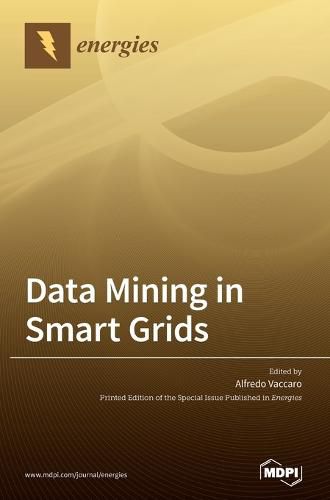Readings Newsletter
Become a Readings Member to make your shopping experience even easier.
Sign in or sign up for free!
You’re not far away from qualifying for FREE standard shipping within Australia
You’ve qualified for FREE standard shipping within Australia
The cart is loading…






This title is printed to order. This book may have been self-published. If so, we cannot guarantee the quality of the content. In the main most books will have gone through the editing process however some may not. We therefore suggest that you be aware of this before ordering this book. If in doubt check either the author or publisher’s details as we are unable to accept any returns unless they are faulty. Please contact us if you have any questions.
Effective smart grid operation requires rapid decisions in a data-rich, but information-limited, environment. In this context, grid sensor data-streaming cannot provide the system operators with the necessary information to act on in the time frames necessary to minimize the impact of the disturbances. Even if there are fast models that can convert the data into information, the smart grid operator must deal with the challenge of not having a full understanding of the context of the information, and, therefore, the information content cannot be used with any high degree of confidence. To address this issue, data mining has been recognized as the most promising enabling technology for improving decision-making processes, providing the right information at the right moment to the right decision-maker. This Special Issue is focused on emerging methodologies for data mining in smart grids. In this area, it addresses many relevant topics, ranging from methods for uncertainty management, to advanced dispatching. This Special Issue not only focuses on methodological breakthroughs and roadmaps in implementing the methodology, but also presents the much-needed sharing of the best practices. Topics include, but are not limited to, the following:
Fuzziness in smart grids computing
Emerging techniques for renewable energy forecasting
Robust and proactive solution of optimal smart grids operation
Fuzzy-based smart grids monitoring and control frameworks
Granular computing for uncertainty management in smart grids
Self-organizing and decentralized paradigms for information processing
$9.00 standard shipping within Australia
FREE standard shipping within Australia for orders over $100.00
Express & International shipping calculated at checkout
This title is printed to order. This book may have been self-published. If so, we cannot guarantee the quality of the content. In the main most books will have gone through the editing process however some may not. We therefore suggest that you be aware of this before ordering this book. If in doubt check either the author or publisher’s details as we are unable to accept any returns unless they are faulty. Please contact us if you have any questions.
Effective smart grid operation requires rapid decisions in a data-rich, but information-limited, environment. In this context, grid sensor data-streaming cannot provide the system operators with the necessary information to act on in the time frames necessary to minimize the impact of the disturbances. Even if there are fast models that can convert the data into information, the smart grid operator must deal with the challenge of not having a full understanding of the context of the information, and, therefore, the information content cannot be used with any high degree of confidence. To address this issue, data mining has been recognized as the most promising enabling technology for improving decision-making processes, providing the right information at the right moment to the right decision-maker. This Special Issue is focused on emerging methodologies for data mining in smart grids. In this area, it addresses many relevant topics, ranging from methods for uncertainty management, to advanced dispatching. This Special Issue not only focuses on methodological breakthroughs and roadmaps in implementing the methodology, but also presents the much-needed sharing of the best practices. Topics include, but are not limited to, the following:
Fuzziness in smart grids computing
Emerging techniques for renewable energy forecasting
Robust and proactive solution of optimal smart grids operation
Fuzzy-based smart grids monitoring and control frameworks
Granular computing for uncertainty management in smart grids
Self-organizing and decentralized paradigms for information processing